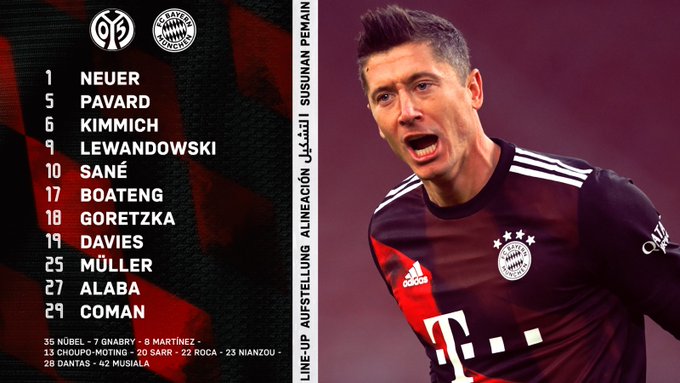You mean sponsors/partners of the league itself? Why do you think they support the league? To buy add space!? More viewers = more advertising value.
That's precisely what I said. The league sponsors want an advertising platform. They live with sharing it with the shirt sponsors etc. It doesn't matter to them in which relation they're to the club.
Less plastic = more viewers!? Leaving aside that plastic clubs being a net gain in quality is a disputable point: sponsors care about head counts, not about the football.
So you believe the Bundesliga had as much followers if the football was duller and the teams would be even worse internationally? There's no way we would've got to 4 CL spots without the plastic clubs. There would be less talent in the league and in the national team. You're being very close minded.
Also, Leverkusen and Leipzig are usually still in the top 10 regarding audience sizes. And that's in spite of the ridiculous model that's behind these quotas.
I don't begrudge clubs who try to earn themselves money, I have no problem with Hertha's recent attempts, I would even welcome them, if they weren't so poorly executed. This is about a group of clubs playing by different rules, while also taking solidarity funds from the clubs that don't.
That's just hypocrisy. Basically you're saying it's okay to raise money but only if you're already a big club. That's the kind of protectionism that's the line of thought behind the Super League, like it or not. You want an open competition? Well, hello then, we're part of it, like it or not. This isn't a democracy, this is sport.
It absolutely matters for your level of engagement if you can just consume the original "content" or mingle with the locals on message boards rather than consuming everything through the filter of translation. Take Christian Streich as an example, you think someone who doesn't speak German appreciates him the same way as someone who does? All the anecdotes and drama get sterilized if you only experience them through a monotonous translator. And besides more than half of the problem is that others got to these markets and established themselves there first. It's not a level playing field anymore, German clubs have to try to catch up from a severe disadvantage.
True. I guess that's why they're not even attempting?
It should be pretty easy to spot clubs who made it to a level that could challenge Bayern, no? If you can't see them, then maybe they don't exist?
Leverkusen and Leipzig are sucessful in the sense that they (used to) have a subscription on top 4/6. The initial point of discussion was to get teams to challenge Bayern. In that respect they are pretty hopeless.
What it proves is that investors enable a club to go up a level or two. That's how ventures work - you identify a potential and the investor helps you utilizing these potentials much, much earlier than it would've been possible through organic growth. Dortmund is bad example due to them being at the stock market but in general, an investor could've accelerated their rise by a considerable margin. An investor could help them to start ventures in Asia, America etc. to strengthen their brand and increase their commercial revenues for instance. This isn't some super complicated dynamic that would have to be proven by examples, it's just the logical consequence as it's practiced in thousands of other industries. Investors accelerate growth and that's exactly what such clubs need to challenge Bayern. Sustainable growth is nice and all but if you need to catch up it's about speed and as long as Bayern is growing at a similar rate, they won't get close.
Honestly if it was just Leipzig it wouldn't be so bad. They represent the East, through their global feeder club network they bring a lot of interesting talents into the league and they might actually be able to fill their stadium. But the problem is that it's not just them, it's also Hoffenheim, Wolfsburg, Leverkusen and whoever else is lurking in the lower divisions.
No, the problem is that clubs operating at a much larger budget are utilizing it terribly. Leverkusen would struggle to make the ECL and Hoffenheim would struggle to make the Bundesliga if Schalke, Hamburg and co. weren't complete underachievers - and that's although they don't have any investors on board.
And that's due to the economic law. What VW and Bayer are investing is limited to what they get in return. Thus Leverkusen will most likely never be able to compete financially with the elite in Germany. That we've been the third most important club during my lifetime in Germany is a testament to how badly run the clubs you're so eagerly protecting are.



